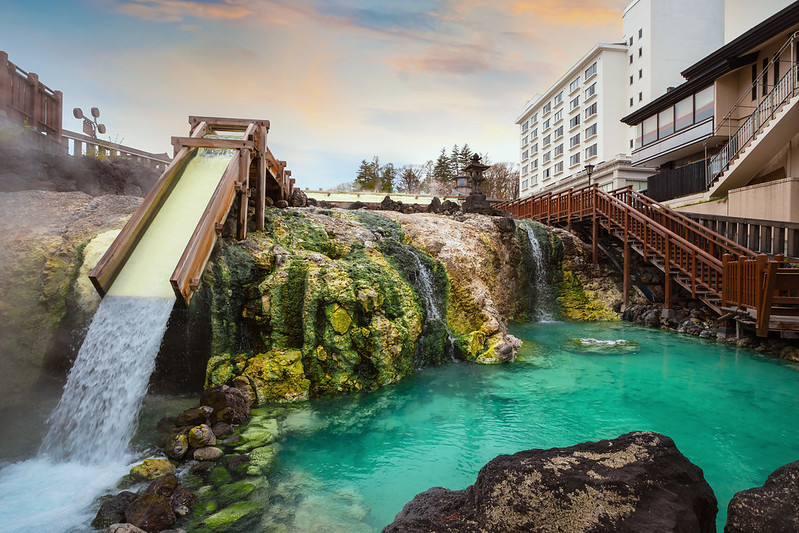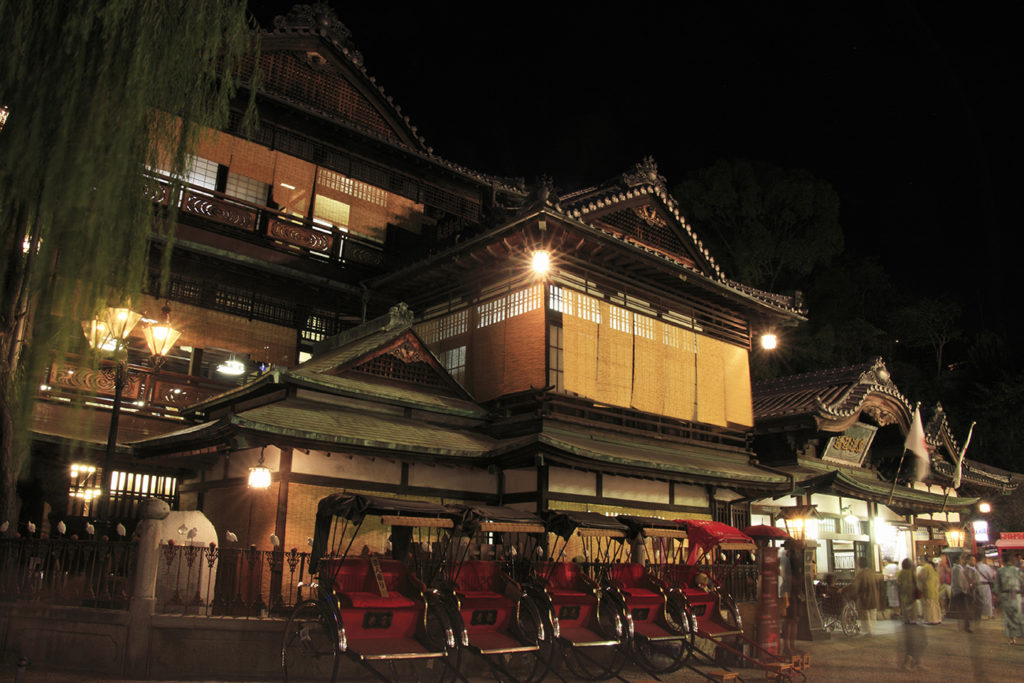
Japanese Onsens’ Claim to Making You Beautiful
Japan consists of 6,852 islands located along a volcanic zone in the Pacific Ring of Fire, 108 with active volcanoes. The islands were formed by oceanic movements that occurred hundreds of millions of years ago. As an island nation, Japan is rich in natural hot springs, or onsen (温泉). Thousands of onsens all over the country serve as public bathing areas for locals and tourists.
Dogo onsen
The mineral composition of each onsen has elements that provide certain benefits. One particular onsen is called Ryujin (literally, Dragon God), also known as “bijin no yu” or “the beautiful women hot spring”.
For hundreds of years, people who have bathed in Ryujin claim that its waters make them more beautiful. People say it is because the mineral content of the hot spring enhances beauty by moisturizing the skin, making it feel smoother.
In November 2012, studies conducted by researchers from the Wakayama Medical University and representatives from a major manufacturer of bath salts concluded the claim is, in fact, true. The study involved 12 male and female participants ages 20 – 50. Participants soaked their hands in water with the same alkaline levels of the waters found in Ryujin Onsen.
The researchers then measured the moisture content of the hand skin of each participant. The study concluded that after soaking in the water, the skin retained three times more moisture. The researchers are still pursuing further study to determine the exact cause of this wonder. They plan to publish their findings at a conference for the Japanese Society of Balneology, Climatology, and Physical Medicine held at Beppu Onsen in Oita Prefecture.
Other types of onsens are sulphur onsen (硫黄泉 iō-sen, iron onsen (鉄泉 tetsu-sen), hydrogen carbonate onsen (炭酸泉 tansan-sen), and sodium chloride onsen (ナトリウム泉 natoriumu-sen).
The minerals in the waters are believed to treat illnesses such as joint pain, diabetes, chronic skin diseases, menstrual pains, constipation, and many others as indicated in a comprehensive bathing treatment called Onsen Therapy” (温泉療法 onsen-ryōhō).
Read more about the Japanese onsen here.


